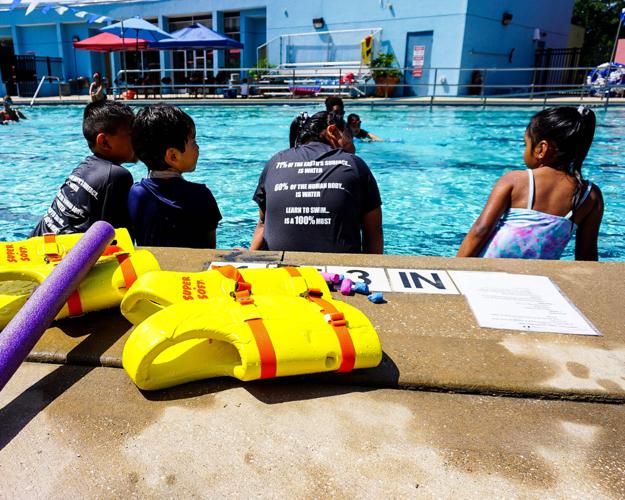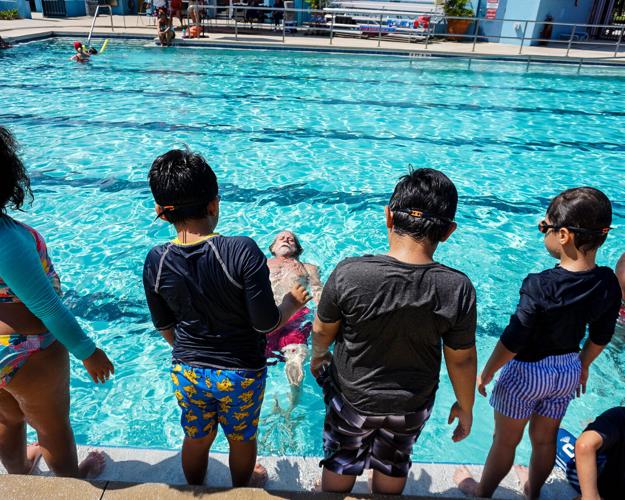Climb aboard the Book Bus for a summer full of reading fun. The Juvenile Welfare Board’s Book Bus is traveling throughout Pinellas County neighborhoods, giving away books to curtail summer reading loss.
To date, the Book Bus has given away more than 5,000 books.
Upcoming stops include:
- NFC: Clearwater 900 N MLK Ave. Clearwater, July 11 at 10 a.m.
- Ross Norton Recreation Center (Camp AWESOME) 1426 S MLK Jr. Ave, Clearwater, July 11 at 9 a.m.
- NFC: HOC, 612 Franklin St, Clearwater, July 12 at noon.
- NFC: CAP Center, 401 E Martin Luther King Jr Drive, Tarpon Springs, July 12 at 9 a.m.
- TS: Cops & Kids, 555 E Harrison St., Tarpon Springs, July 12 at 9:45 a.m.
- TS: YMCA Elementary School, YMCA 555 E Pine St., Tarpon Springs, July 12 at 10:30 a.m.
- Rclub: East Lemon, 1019 E. Lemon St., Tarpon Springs, July 12 at 11:15 a.m.
- TS: Boys and Girls Club, 111 W. Lime St., Tarpon Springs, July 12 at 1 p.m.
- Dunedin Public Library, 223 Douglas Avenue, Dunedin, July 13 at 11 a.m.
- YMCA Suncoast – Dunedin Bridge, 900 Union St., Dunedin, FL 34698 7/13/2022 12:00
- YMCA Suncoast – Curlew Creek Bridge, 3030 Curlew Road, Palm Harbor, July 14 at 11:45 a.m.
- Tarpon Springs Public Library, 138 E Lemon St., Tarpon Springs, July 13 at 12:30 p.m.
- YMCA – Lake St George Bridge, 2855 County Road 95, Palm Harbor, July 14 at 12:45 p.m.
- Largo Public Library, 120 Central Park Drive, Largo, July 12 at 10 a.m.
- Coral Heights, 3718 139th Ave. Largo, July 13 at 1 p.m.
- YMCA Fuguitt Elementary & Starkey, 13010 101st St. SE, Largo, July 12 at 9 a.m.
- NFC: GRAYDI, 13420 Adams Circle, Largo, July 13 at 10 a.m.
- B&GC: Ridgecrest, 13420 Adams Circle, Largo, July 13 at 10 a.m.
- YMCA: Ridgecrest/Tuskegee YMCA, 1801 119th St. N, Largo, July 13 at 9 a.m.
- Barbara Ponce Library, 7770 52nd St. N, Pinellas Park, July 11 at noon.
- Broderick Recreation Center, 6101 66th Ave. N, Pinellas Park, July 13 at 9 a.m.
- Forbes Recreation Center, 6401 94th Ave. N, Pinellas Park, July 14 at 10 a.m.
- B&GC: Pinellas Park, 7790 61st St. N, Pinellas Park, July 14 at 9 a.m.
- Johnson Community Library, 1059 18th Ave. S, St. Petersburg, July 11 at noon. 7/11/2022 12:00
- Pinellas PAL – Landings, 6835 54th Ave. N, Building F, St. Petersburg, July 11 at 10 a.m.
- Police Athletic League of St. Petersburg 1450 16th St. N., St. Petersburg, July 13 at 11 a.m.
- NFC: Sanderlin, 2335 22nd Ave. S, St. Petersburg, July 13 at 1 p.m.
Magnolia Day School, 2701 54th Ave. S, St. Petersburg, July 14 at 10 a.m.
Click here for more information.
Read the article on Patch.com: https://patch.com/florida/clearwater/calendar/event/20220711/1894551/book-bus-travels-pinellas-county


